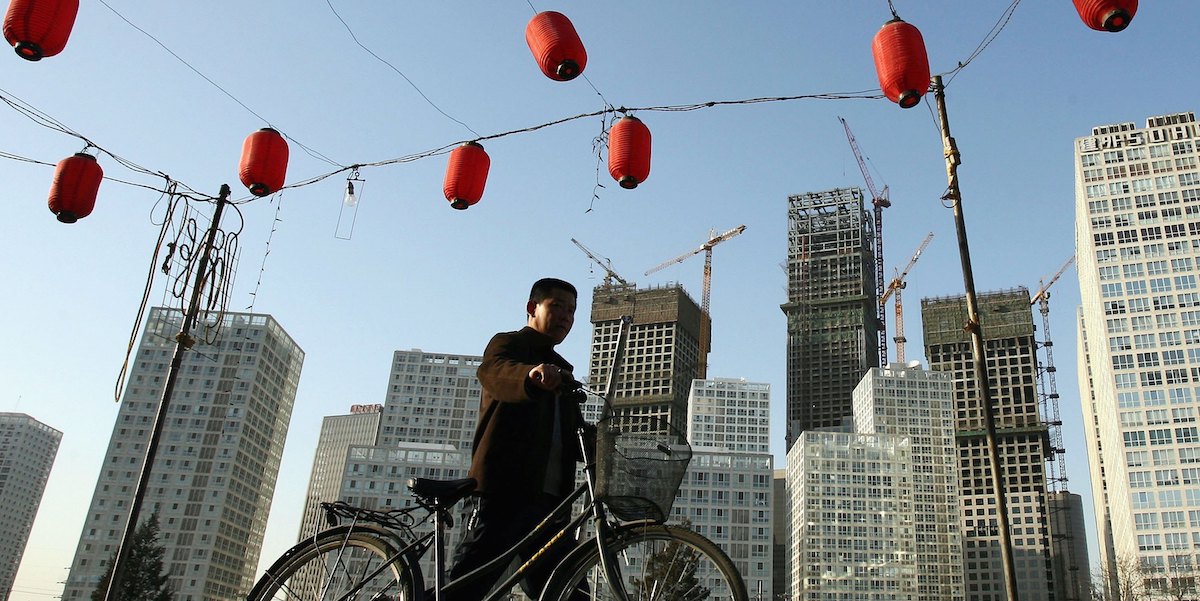After the Chinese Gross Domestic Product had grown in the first quarter of the year faster than expectedthanks to the end of the zero Covid strategy, the opposite happened in April and May: there were rather disappointing results on consumption, investments and the real estate market and there is the possibility, considered by many not too remote, that the economy does not grow at all in the second quarter compared to the first. Analysts had long waited for the end of the coronavirus restrictions in China to see if the economy would return to growth as before the pandemic, but with the new data they found themselves even forced to cut estimates of overall economic growth for this year.
China’s economic weakness carries both benefits and risks for the global economy. Consumer and producer prices in China have fallen in recent months, reducing the cost of imports from China and thus somewhat curbing inflation in the West. At the same time, however, a substantial drop in Chinese demand would certainly have negative effects on exports from Western countries to China and could accentuate the trend towards a global slowdown in the economy. A trend which, however, is already largely underway: the Eurozone has entered a technical recession and some analysts predict that by the end of the year they will also the United States.
Analysts attribute much of the Chinese slowdown to some negative trends in the real estate sector, which has driven Chinese growth for years, which is worth about a quarter of the country’s GDP and which is now in great pain. Another serious problem is the labor market, which is struggling to integrate young people in particular: the unemployment rate for people aged between 16 and 24 is 20.4 per cent, the highest for several years.
The difficulties of the real estate sector have been known for years, but have worsened recently. One of the most notable phenomena was, for example, the crisis of Evergrande at the end of 2021, a huge Chinese group that turned out to be the most indebted real estate development company in the world. After being the protagonist of the country’s great economic growth, it has entered a crisis due to the slowdown in the real estate market in China and the more stringent regulations recently imposed by the government for the sector. In addition, Evergrande’s management over the years had made very risky choices and heavy investments in other sectors as well, from football to electric cars to the agri-food industry.
The financial meltdown of this company has helped to make it clear how deep the crisis was in the whole sector, which has not yet recovered. Despite public interventions to avoid a chain of bankruptcies with enormous consequences on society, the real estate sector was so indebted that in many cases it was difficult to finish the projects. Anyone who invested in a real estate project, or had recently done so, was no longer sure that it would actually be built.
At the beginning of the year, the sector seemed to have partially recovered: government interventions had finally succeeded in their intention of not causing most of the real estate companies to go bankrupt and property purchases had started to grow again, partially recovering all those purchases which families had put it off due to the housing crisis. But the momentum seems already over: the price of new homes fell in May, compared to the previous month, a sign that demand has returned to sluggishness. The number of sales is one third lower than 2019 levels and new buildings are also 60 percent less.
The crisis in a sector that has greatly driven economic growth in recent years has had significant effects on the whole economy: unemployment is increasing, especially among young people (one in five young people in urban areas is unemployed); households and businesses prefer to keep their money in place, with the result that consumption and investment do not grow because there is a lack of confidence in robust growth.
The Chinese government has already implemented a series of measures to try to revive the economy: tax breaks have been introduced for small businesses, the Chinese central bank has reduced interest rates to encourage households to spend more money instead of saving it (as opposed to what is happening in the West, where central banks are increasing them to counter inflation). The latest government measure has been announced Tuesdaywhen the state-controlled banking system cut its benchmark interest rates for business loans and home loans.
– Read also: Is the Chinese economy still destined to overtake the American one?
